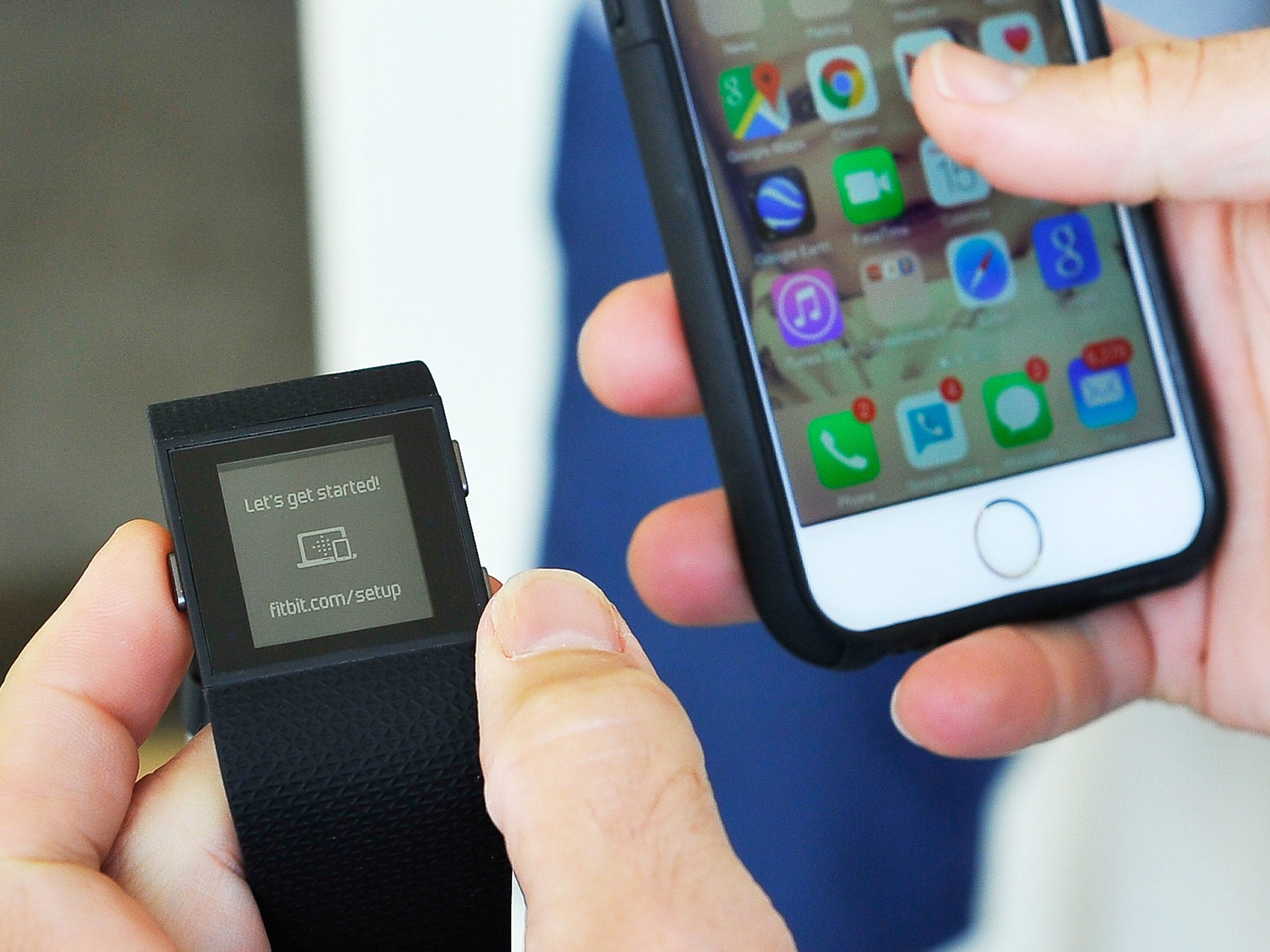Patients should be able to use Fitbit to feed information to their GP, says Jeremy Hunt
Health secretary says apps could help monitor long-term conditions

Patients should be able to use wearable exercise monitors such as Fitbit to feed information about their activity levels to their GP, Jeremy Hunt, the Heath Secretary, has said.
Arguing that smartphone apps could also play a major role in monitoring long-term conditions such as diabetes, Mr Hunt also announced that one in four smartphone users should be routinely accessing NHS advice, services and their own medical records through apps by 2017.
Launching a bid to make the NHS a world leader in digital patient care, Mr Hunt pledged that all patients would have access to their entire medical records online by 2018. Full GP records, including information about blood-test results, appointment records and medical histories, will be available next year.
“It goes back to this power relationship between doctors and patients,” he told delegates at the NHS Innovation Expo event in Manchester on Tuesday. “The evidence from all over the world is that when patients start to access their medical record, they start to think about their health care in a different way… When you have shared access to a medical record, it becomes a shared endeavour, a shared responsibility, and the world’s most powerful patients become the world’s healthiest patients.”
Patients will even be able to add to their medical records using wearable fitness-performance trackers, or point out mistakes, he added.
“Many people wear these Fitbit devices, which measure how many steps you’ve taken every day. If you were willing to connect that information to your medical record it would be incredibly helpful for a doctor to know how much exercise you’d been taking every day.”
Records would have to be made available in a way that was useful to patients, he said, accepting that in its raw form, much of the information contained in a full medical record would be “gobbledegook”.
Around 97 per cent of patients already have the ability to access a summary of their medical record from their GP, but full medical records would be much more extensive.
Mr Hunt acknowledged that the transparency drive around health records carried a data-security risk. He announced a review of patient-data security to be led by Dame Fiona Caldicott, and said that the health inspectorate, the Care Quality Commission, would be given new responsibilities to monitor hospitals, surgeries and other organisations on their data-security measures.
NHS data specialists at the Health and Social Care Information Centre will also form a new task force – the Care Computing Emergency Response Team – to support NHS organisations hit by cyber-security threats.
Join our commenting forum
Join thought-provoking conversations, follow other Independent readers and see their replies
Comments